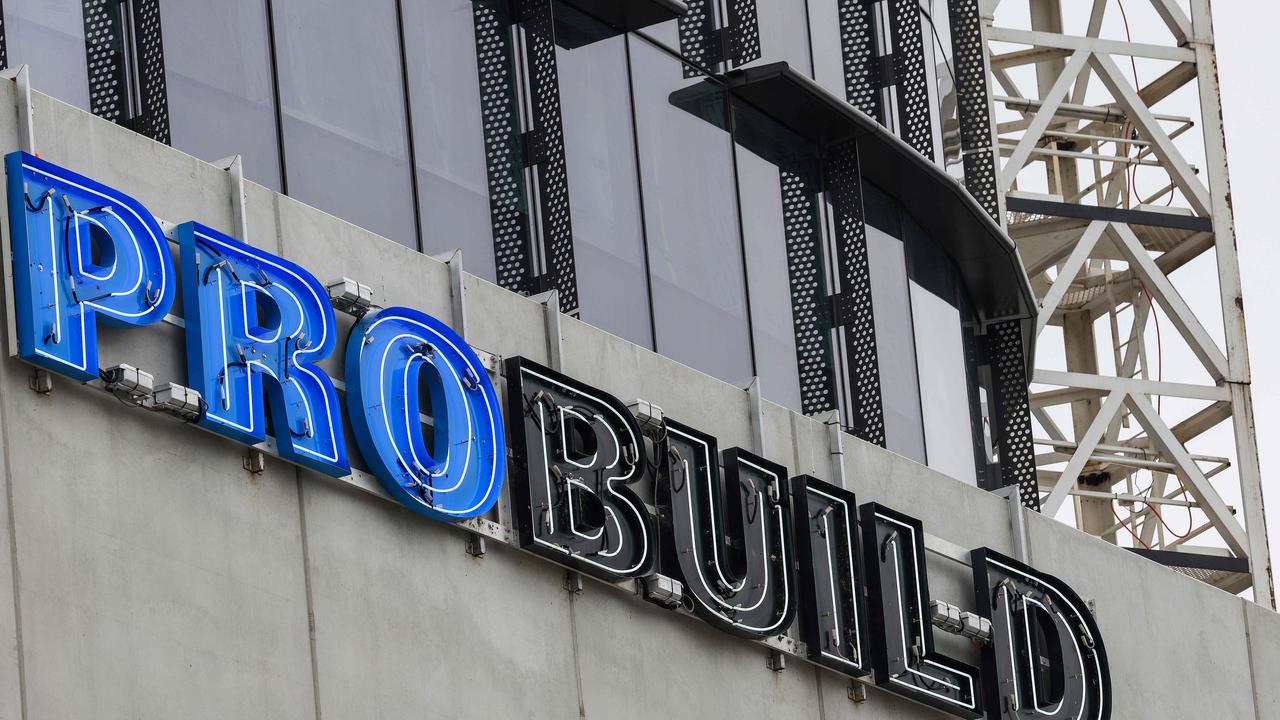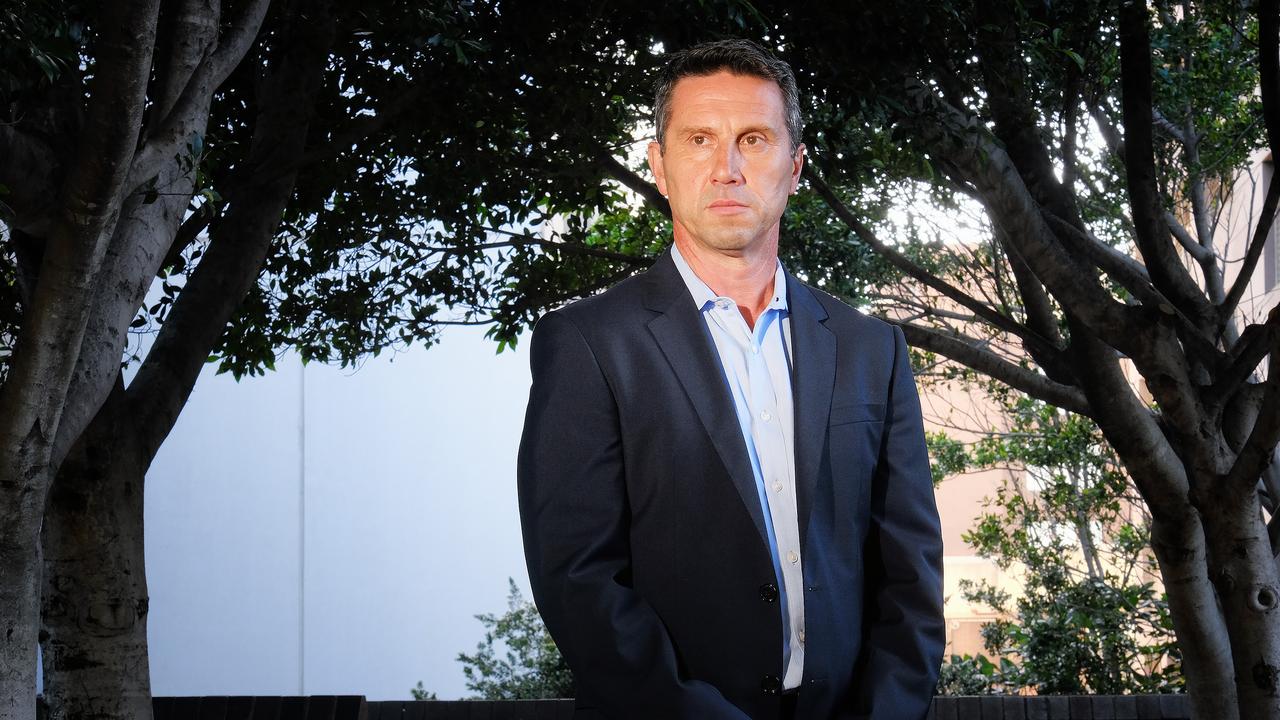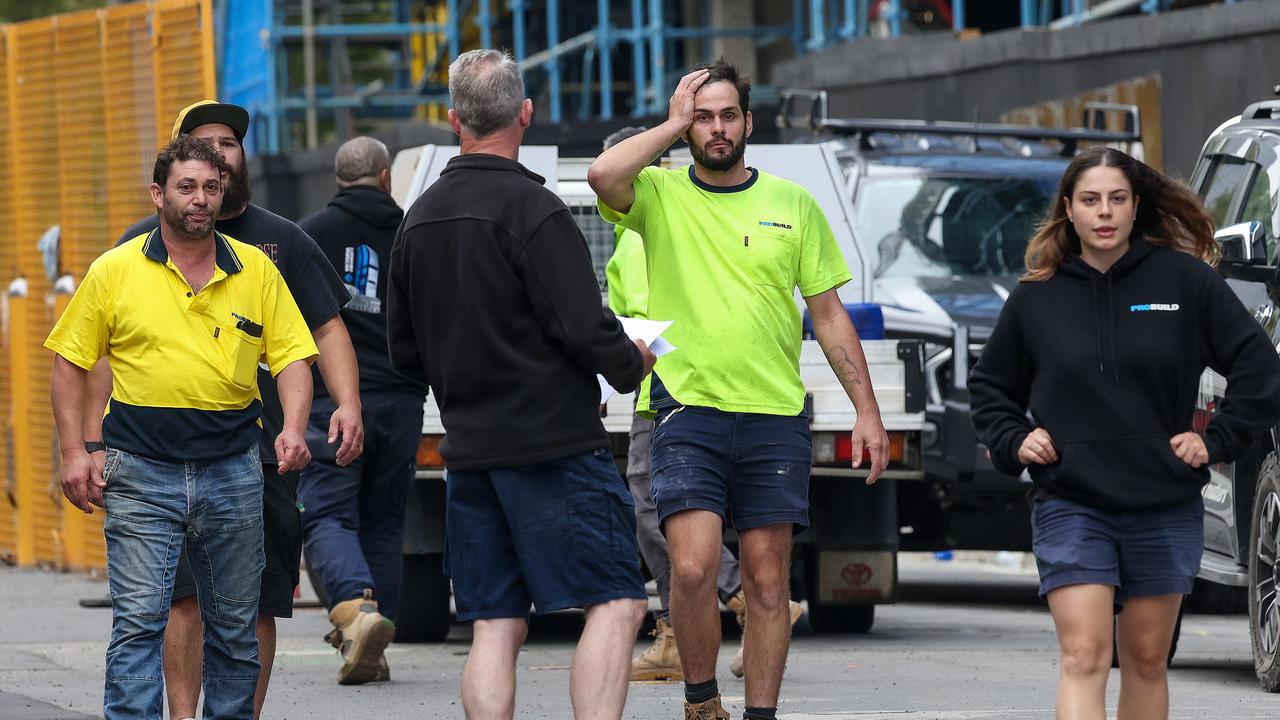Probuild collapse sparked by $200m cash loss on Western Road Upgrade project
A material bidding error on major a Victorian infrastructure project was a major reason behind the collapse of construction giant Probuild.

QLD News
Don't miss out on the headlines from QLD News. Followed categories will be added to My News.
Errors and delays on the troubled Victorian Western Road Upgrade project (WRUP) had resulted in a cash loss of more than $200m and was a major contributor to the collapse that claimed construction giant Probuild.
A Deloitte report to creditors of WBHO Infrastructure (WBHOI) obtained by The Australian pinpointed the cash losses from the $1.8bn project as one of the main reasons for South African construction giant Wilson Bayly Holmes-Ovcon refusing to continue to finance its Australian arm.
The voluntary administrators said a “material bidding error” on the Western Road Upgrade project, a public-private partnership contract with the Victorian Government, arose from a misinterpretation of the design specifications.
They said in the report that when combined with unforeseen delays, it resulted in a cumulative net cash loss of about $202m which meant the parent company had to be called on to finance its Australian arm and in turn WBHOI to cover the cash losses on the infrastructure project.
WBHOI was one of 18 businesses in WBHO Australia Group (WBHOA), including construction giant Probuild, that were placed into voluntary administration through Deloitte’s Turnaround & Restructuring team Salvatore Algeri, Jason Tracy, Matthew Donnelly
and David Orr in February.

They embarked on a strategy to sell off the Australian operations and on March 14 ASX-listed SRG Global Limited signed a sale implementation deed to buy WBHOI’s WA business.
The Perth-based engineering-led global specialist asset services, mining services and construction group is seeking to acquire the WA business for a net consideration of $15.2m which includes the payment of all staff entitlements.
A second virtual meeting of WBHOI creditors will be held on March 30 for final approval.
Administrator Mr Donnelly said it could take up to a year for a final figure that WBHOI owed creditors but it was “a big number” and likely to exceed $100m with money owed to creditors, its parent company and other stakeholders.
However, he said they were confident that SRG Global’s bid to buy the company’s WA operations will succeed which will see the company come out of administration which will be a “fantastic result”.
“We believe the sale of the WBHOI business to SRG Global is compelling,” Mr Donnelly said.
“SRG is a well-established industry player, and the sale provides the highest and best value proposition for creditors based on the offers received, retains jobs and entitlements for the Western Australian employees, and provides certainty for WBHOI’s suppliers and customers.
“If that happens WBHOI will have only been in administration for five weeks which is a lightening fast restructure and exit which is great for the business.”

The report said that in the event creditors not supporting the deed of company arrangement a transaction can still be completed via an asset sale agreement using the administrators power of sale under the Corporations Act.
A leading provider of infrastructure asset management, civil maintenance and construction services, WBHOI has a 35-year track record and historically generated about $150m of annual revenue.
More than 250 West Australian staff are expected to transfer to SRG while 17 Queensland-based staff have been made redundant and the Bruce Highway upgrades have been handed back to the Queensland Department of Tradsport and Main Roads.
About 20 staff on the Western Road Upgrade project have been transferred to head contractor Netflow which will finish the project.
WBHOI was awarded the WRUP contact in 2017 and had an estimated loss forecast of $50m in 2018 and in 2021 the company revealed the contract losses to be $161m but the Deloitte report said “the loss has further increased”.
They said as well as WRUP cost over runs at the Stockyard Hill Wind Farm Project also in Victoria contributed to the failure as did changing market conditions, increasing cost of labour and skill shortages.
There were also challenges associated with managing projects in Victoria from WA, particularly in a Covid-19 environment as well as under-capitalisation and reliance on funding from the parent company.
In early March -principle agreement with leading NSW-based construction firm Roberts Co for the purchase of most of Probuild’s Victorian building projects. The exclusivity agreement Roberts Co has been extended.
After Probuild collapsed it was revealed that nationally it owed its 786 workers $14m and untold amounts to more than 2300 creditors, and Deloitte conceded they faced a “nightmarish” scenario in salvaging the company’s projects.
The report revealed that another troubled Probuild project, the apartment tower at 443 Queen St in Brisbane, has a loss had increased from $12m at the end of 2019 to $48m by the end of the current reporting season due to further delays.





